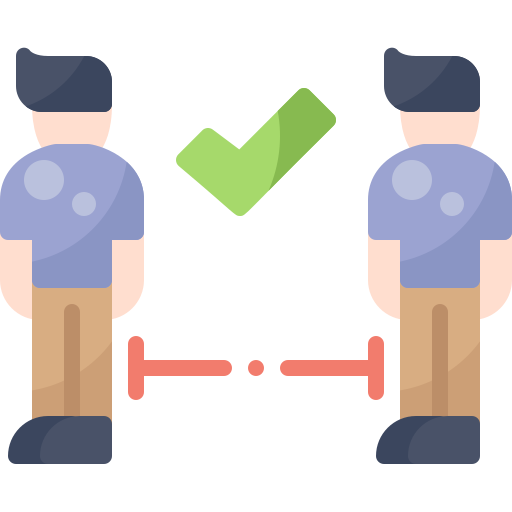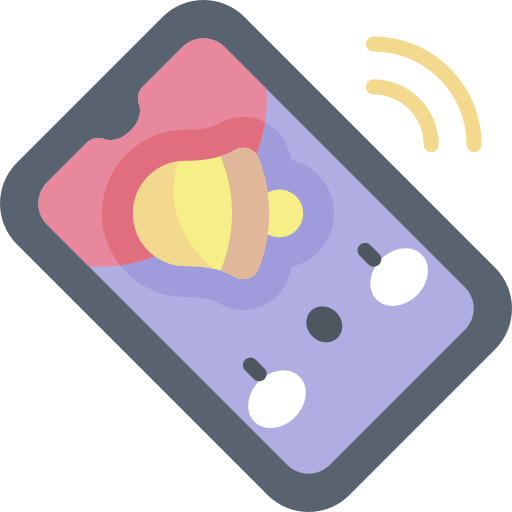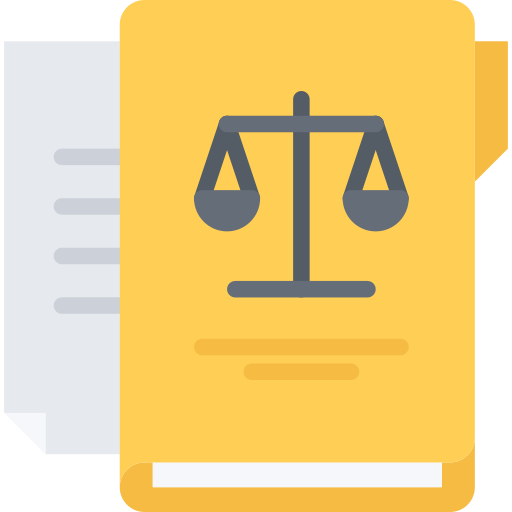In Florida an injunction of protection prevents
Recently updated on December 22nd, 2025 at 10:48 am
A Domestic Violence Injunction, also called a restraining order, is a court-issued directive that prohibits an abuser from approaching or contacting their victim. It is granted when the abuser engages in harassment, threats, stalking, or physical harm. This order acts as an official legal safeguard, and any violation—such as sending text messages—can result in criminal charges and potential jail time.
What Restraints can I ask when I file for a Domestic Violence Injunction
Here are the typical restrictions places on the abuser via the Domestic Violence Injunction.

Stay Away From You
The judge orders the abuser to stay away, typically at least 100 yards away from you, your children and locations you request such as your work. There is no one constantly monitoring the abuser. So if the abuser doesn’t maintain this distance, it will be up to you to report it to the police.

Not To Contact You
Not to contact you via phone or text or mutual friends. This includes social media such as Facebook or Instagram or Tiktok or any other messaging platform.

Not Stalk You
Not to stalk you or your loved ones e.g. by following you from a certain distance, including online stalking of your accounts on Facebook or other social media. In Florida, stalking is legally defined under Florida Statute 784.048. It involves willfully, maliciously, and repeatedly following, harassing, or cyberstalking another person. Cyberstalking is repeated actions done over a period using electronic communication (e.g., emails, texts, social media) to harass, threaten, or intimidate a person.

Hand Over A Car
Suppose you Get access to cars held by the abuser. In Florida, a judge can grant a victim possession of a vehicle in a Domestic Violence Injunction (DVI) case under certain circumstances. This typically happens when the court determines that the victim needs the vehicle for daily living, safety, or financial stability. Here are common situations where this may occur:
- Primary Use & Necessity: The victim primarily uses the car for work, transportation of children, or essential activities (e.g., medical appointments, school). The victim has no other means of transportation, and denying access would cause hardship.
- Safety Concerns: If the abuser has used the car as a means of control, such as threatening to take it away or using it to track the victim.The victim needs the car to relocate to a safe location or to avoid further danger.
- Financial Dependence: If the vehicle is jointly owned or in the abuser’s name, but the victim has made significant payments or relies on it for financial stability. If granting the vehicle helps the victim maintain employment and financial independence.
- Temporary Use During Proceedings: A judge may temporarily award the car to the victim while the case is ongoing, even if ownership is disputed, especially if children are involved.

Vacate The Shared Residence
The respondent can be asked to vacate the shared residence. You can also request help from police to kick them out.In Florida, a judge can grant the shared residence to the victim in a Domestic Violence Injunction (DVI) case under specific circumstances, primarily to ensure the victim’s safety and well-being. Here are the key situations where this may happen:
- The Victim is in Immediate Danger: If the judge determines that the victim is at risk of further violence, harassment, or intimidation from the abuser. If the abuser has a history of physical abuse, threats, or stalking, forcing the victim to leave could put them in greater danger.
- Best Interests of Minor Children: If children are involved, the court may grant the home to the parent who is the primary caregiver to provide stability and continuity. If removing the victim and children would cause unnecessary disruption (e.g., affecting school, childcare, or well-being).
- Financial Hardship & Housing Needs If the victim has no alternative housing options, while the abuser has the ability to secure another residence.If the victim financially depends on the home (e.g., they cannot afford to move out, while the abuser can).
- Ownership & Lease Considerations Even if the residence is jointly owned or leased, a judge can grant the victim exclusive use of the home regardless of whose name is on the title or lease. If the victim is the sole owner or leaseholder, the judge is more likely to grant them the residence while ordering the abuser to leave.
- Temporary Housing Order The court may issue a temporary order allowing the victim to stay in the home while further legal proceedings determine permanent living arrangements.

Handover Passport, Cell Phone, Medications Etc.
You an ask for your personal items such as passport, medications, clothes. This would be applicable if you were living together up to now.
In Florida, a judge can order the handover of essential personal items—such as a passport, cell phone, medications, and other necessary belongings—to the victim in a Domestic Violence Injunction (DVI) case under the following circumstances:
- Essential for Safety & Independence: If the victim needs their passport to travel for safety reasons, such as fleeing an abuser or relocating to a safe location. If the victim’s cell phone is withheld by the abuser, preventing them from contacting family, law enforcement, or emergency services.
- Necessary for Health & Well-being: If the victim’s medications, medical devices, or healthcare supplies are in the abuser’s possession and are critical for their health. If the abuser is withholding necessary medical prescriptions as a form of control or coercion.
- Financial or Legal Dependence: If the victim needs a cell phone, passport, or other documents (e.g., ID, bank cards, work permits) to maintain employment, access funds, or handle legal matters. If the abuser has taken control of financial or legal documents, preventing the victim from accessing important resources.
- Items Belong to the Victim: If the judge determines that the items rightfully belong to the victim and should not be withheld by the abuser. If the abuser refuses to return personal property despite the victim’s request

Don’t Post Intimate Photos
Take down, delete, and do not distribute intimate images of a protected person.
In Florida, a judge can order a “Don’t Post Intimate Photos” provision as part of a Domestic Violence Injunction (DVI) to protect the victim from harassment, coercion, or reputational harm. This is particularly relevant in cases involving revenge porn, digital abuse, or threats of exposing private images. A judge may grant this order in the following situations.
-
If the abuser has threatened to share explicit photos or videos of the victim as a form of control, blackmail, or retaliation, a judge may order them not to post intimate images. This is especially relevant when the victim fears their reputation, employment, or relationships may be harmed by such actions.
-
If the abuser has already shared intimate images or attempted to post them on social media, websites, or with others, the court may intervene to prevent further harm. Evidence such as texts, emails, or messages showing the abuser’s intent to distribute these images can strengthen the request for this protection.
-
If the abuser is using the threat of posting intimate photos to force the victim to stay in the relationship, give money, or comply with demands, the court may issue an order prohibiting such behavior. This includes situations where the abuser engages in “sextortion,” demanding something in exchange for not releasing explicit content.
-
If the abuser has engaged in cyberstalking or digital harassment, such as spreading false information, hacking into accounts, or using social media to intimidate the victim, a judge may include a provision preventing the posting or sharing of intimate images. This is particularly important when there is a pattern of using technology to control or harm the victim.
-
Florida has a criminal law against revenge porn (Florida Statute 784.049) that makes it illegal to publish, post, or distribute intimate images without consent. A judge can reinforce this protection through a DVI by specifically ordering the abuser not to share, post, or threaten to distribute any explicit content, ensuring the victim has both civil and criminal recourse if this order is violated.

Restrict Abusive Litigation
This is to prevent the misuse of the legal system to harass, intimidate, or burden you.
In Florida, a judge can restrict abusive litigation in Domestic Violence Injunction (DVI) cases to prevent an abuser from using the legal system to harass, intimidate, or control the victim. This is especially important when court filings become a form of continued abuse. A judge may impose restrictions in the following situations:
-
If the abuser repeatedly files baseless lawsuits, motions, or petitions against the victim to cause stress, financial strain, or disruption to their life, the court may limit or block further filings. This includes frivolous custody disputes, defamation claims, or excessive motions in family court.
-
If the abuser misuses the legal system to force the victim into unnecessary court appearances, causing emotional distress or financial hardship, the judge can restrict such filings. This protects the victim from being dragged into court as a means of ongoing intimidation.
-
If the abuser has a pattern of filing false reports to law enforcement, child protective services, or other agencies in an attempt to harm the victim’s reputation or legal standing, the court may intervene to prevent further malicious actions.
-
If the abuser uses subpoenas or discovery requests to obtain personal information about the victim—such as home addresses, employment details, or medical records—the judge can limit access to sensitive information to protect the victim’s privacy and safety.
-
If the abuser violates a previous court order by continuing to file motions related to issues already settled, the court may declare them a vexatious litigant and require pre-approval before allowing any future legal actions against the victim.

Get Drugs, Mental Health And Sex Offender Treatment
You can request the abuser to seek treatment for alcoholism, drug use, domestic violence abuse
In Florida, a judge can order an abuser to undergo drug treatment, mental health counseling, or sex offender treatment as part of a Domestic Violence Injunction (DVI) when there is evidence that such intervention is necessary for the victim’s safety and the abuser’s rehabilitation. A judge may impose these requirements in the following situations:
If the abuser has a history of substance abuse that contributes to violent or threatening behavior, the court may order drug or alcohol treatment. This is especially likely if there is evidence of intoxication during incidents of domestic violence or if substance abuse increases the risk of future harm.
If the abuser has been diagnosed with or shows clear signs of mental health issues—such as severe depression, paranoia, or psychosis—that affect their ability to control violent or abusive behavior, a judge may mandate mental health treatment. This order is often given when the abuser refuses to seek help voluntarily.
If the abuser has a record of sexual violence, coercion, or predatory behavior, the court may require them to complete sex offender treatment. This is particularly relevant in cases where the victim has reported sexual abuse within the relationship or if the abuser has a history of related offenses.
If the abuser has previously violated restraining orders or protective injunctions, the court may impose mandatory counseling or treatment as a preventive measure. This is common when prior legal interventions have failed to stop the abusive behavior.
If the abuser has been convicted of or is facing criminal charges related to domestic violence, sexual assault, or stalking, a judge may include rehabilitative treatment as part of the injunction to reduce the risk of reoffending and ensure compliance with court orders.
Resources
Here’s a list of government agencies that assist victims of domestic violence in Florida
🛡️ Florida State Agencies and Programs
-
Florida Department of Children and Families – Domestic Violence Program
Oversees certified domestic violence centers across the state and coordinates services. -
Florida Coalition Against Domestic Violence (FCADV) (formerly the official partner; now redirected to DCF after state oversight changes)
Formerly managed programs and training. Current services are through DCF’s direct oversight. -
Florida Legal Services – Domestic Violence Resources
Offers legal assistance and advocacy for survivors of abuse. -
Florida Courts – Domestic Violence Forms & Resources
Provides court forms, procedural info, and access to local self-help centers. -
Florida Department of Law Enforcement (FDLE) – Domestic Violence Data & Services
Maintains statistics and public safety programs related to domestic violence.
🏛️ Federal Agencies
-
Office on Violence Against Women (OVW) – U.S. Department of Justice
Administers grant programs and supports local and state efforts to combat domestic violence. -
National Domestic Violence Hotline (Federally funded)
Provides 24/7 support and resources: 1-800-799-SAFE (7233). -
Administration for Children and Families (ACF) – Family and Youth Services Bureau (FYSB)
Funds domestic violence shelters and support programs through the Family Violence Prevention and Services Act (FVPSA).
Related Posts
Can I Appeal A Small Claims Judgment Illinois
Recently updated on December 22nd, 2025 at 11:12 amOverview In Illinois, every party in a small claims case—plaintiff or defendant—has the right to appeal a judgment entered by a circuit-court judge. Although the small claims division is designed for speed and informality, its decisions are legally binding. If you believe the judge misapplied the law,…
Illinois Small Claims court Process Self Represented
Recently updated on December 22nd, 2025 at 10:46 amOverview The Illinois Small Claims Court is designed for speed, simplicity, and self-representation. It handles civil disputes involving $10,000 or less, excluding interest and court costs. The process is structured to be accessible to citizens without lawyers—what Illinois courts call “pro se” litigants. By providing standardized forms,…
Illinois mall Claims Court Forms Fees
Recently updated on December 22nd, 2025 at 10:42 amOverview The Illinois Small Claims Court provides an efficient and affordable way for individuals and small businesses to resolve monetary disputes of $10,000 or less. Designed for self-represented litigants (pro se), the system simplifies traditional civil procedures through standardized forms, limited motion practice, and straightforward evidence rules.…
What Qualifies For Small Claims Court Illinois
Recently updated on December 22nd, 2025 at 10:48 amOverview The Illinois Small Claims Court exists to resolve civil disputes involving money claims of $10,000 or less. It provides a simple, fast, and affordable way for people to pursue justice without needing an attorney. The rules are governed by Illinois Supreme Court Rules 281–289, which simplify…





